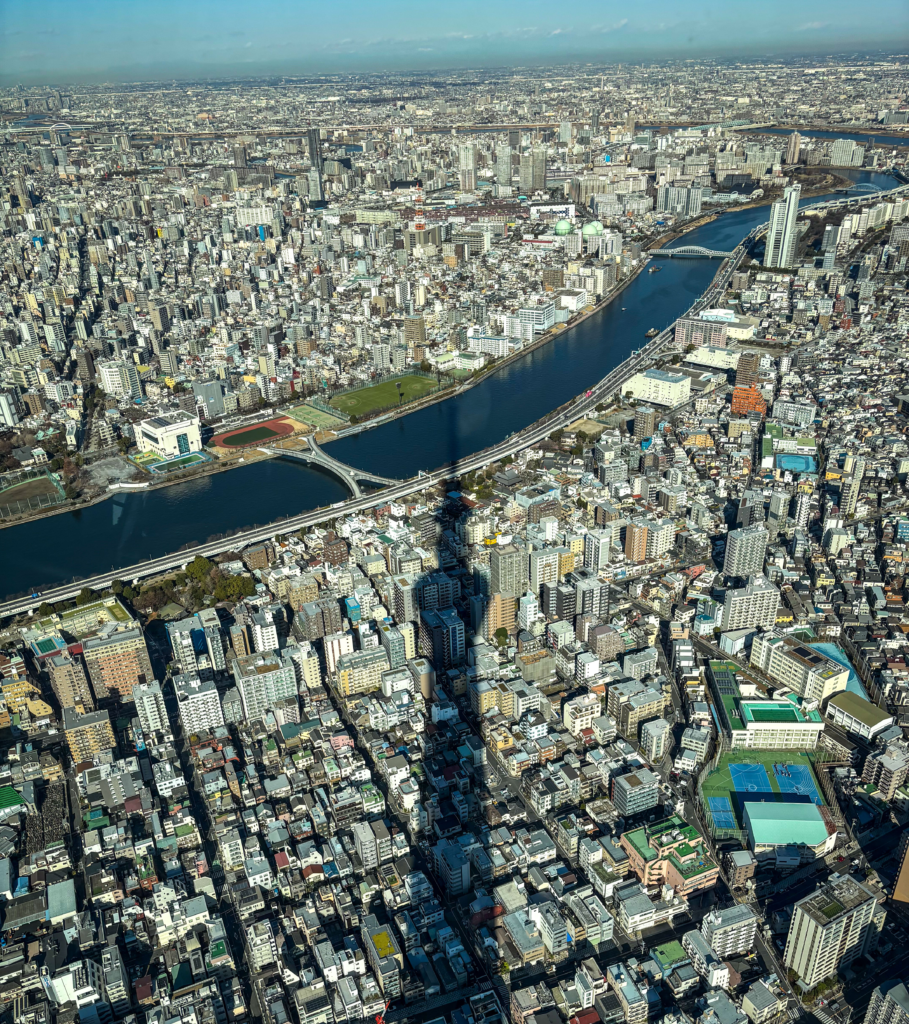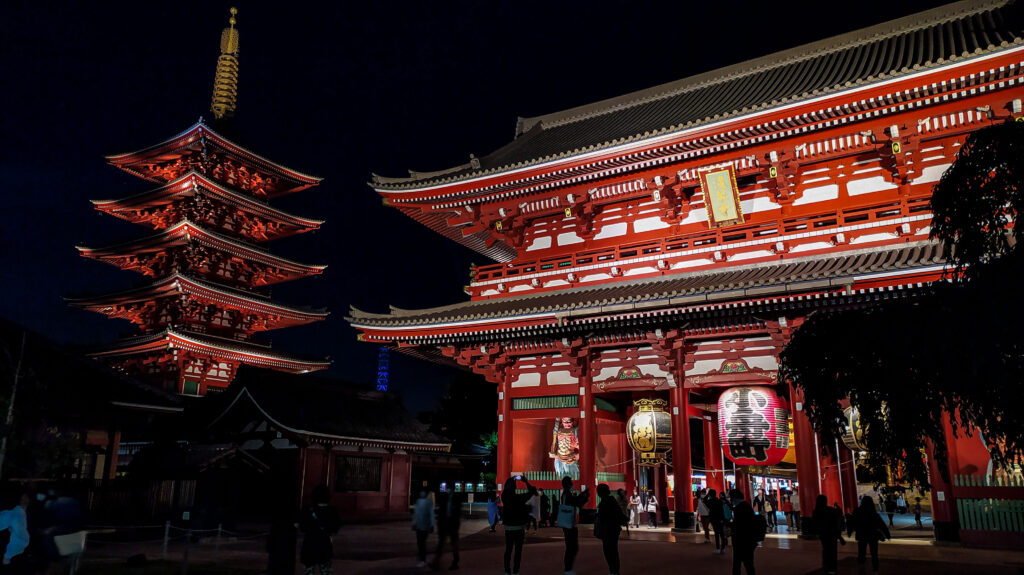When I boarded a plane bound for Japan, a country I had admired for years without ever having set foot there, I arrived not as a tourist, but as a new resident, ready to begin a new chapter of my professional life on the other side of the world. Japan has always fascinated me with its cinema, its cuisine, its culture, its literature, and its keen artistic sensibility.
Yet, admiring from afar is one thing, living at the heart of this world is quite another. What awaited me was not the tranquil, idealized vision of Japan I had long carried in my mind, but a reality far more complex, challenging, and ultimately transformative. I was leaving France to live in a foreign country for the first time, and I must admit that this choice has been more than beneficial for me, for better or for worse.
Arrival and adaptation
In 2022, the Japanese borders were still officially closed to tourists. Entering under a work visa made me feel both privileged and isolated. I had no family, no friends, and no prior experience of life here. My first impression was one of silence. During my first few days in Tokyo, I took the time to visit the city’s iconic districts, and didn’t even recognize Shibuya Crossing as the pedestrian crossings that I had always seen crowded with people were now almost empty.
My first job in Japan was with a company run by a French CEO, which initially gave me a false sense of familiarity in an unfamiliar land. I imagined that sharing a common language might ease the transition. Instead, it became the most difficult professional experience of my life. Without delving into details, since the individual in question has a reputation for litigious behavior, what I can say is that the experience tested every ounce of my patience, self-respect, and adaptability. What should have been a smooth introduction to Japan turned into a lesson in resilience.
After just one month, I made a decision that few new arrivals would dare to take: I resigned. I found myself in a foreign country, thousands of kilometers from home, without financial security or professional stability. But by walking away from what was wrong, I had created space for what could be right.
Before moving to Japan, I worked remotely as a freelance director and editor for a Japanese VR (virtual reality) company based in Tokyo. The day after I resigned, I met a Canadian employee from that company, someone I had worked with in France. He had spoken to the CEO about my situation, whom I knew only vaguely from my previous job, and the CEO didn’t hesitate to offer me a full-time position. It was the beginning of a new chapter in my professional life!


Working in a Japanese company
After the turbulence of my first month in Japan, joining a Japanese company felt like a second chance, a chance to start anew and to experience what it truly meant to work within the country’s professional culture. The company specialized in virtual reality, a field that perfectly combined my interests in visual storytelling and technology. I joined the Global Marketing team, whose mission was to promote our products outside of Japan, bridging cultural and linguistic divides through creativity and communication.
At first, I was fascinated by how precisely everything was organized. Meetings began exactly on time, tasks were clearly defined, and communication followed a sense of order I had never encountered before. It felt as though every element of the workday had been designed to minimize chaos and encourage quiet efficiency. I had the freedom to go to the office or work from home, and I quickly realized that remote work suited me better. When I did go to the office, I was struck by how different the atmosphere was from what I had known in France.
In France, workspaces are usually filled with conversations, the exchange of ideas over coffee, laughter during lunch breaks, and casual discussions about weekend plans. The workplace is not just a space of production, but also of connection. In Japan, the atmosphere was completely different. The office was calm, focused, almost monastic. People communicated with short, efficient sentences. There was no background noise, no idle talk, no interruptions. Everyone seemed fully absorbed in their own tasks. It was not unfriendly, but it felt distant, a form of professional solitude I had to learn to accept. It took me weeks to understand that efficiency here does not come from collaboration in the Western sense, but from a shared understanding of purpose.
Still, the adjustment was not without challenges. We had daily meetings on Microsoft Teams, all conducted in Japanese. Fortunately, there was an automatic translation system into English, allowing me to participate without difficulty. The CEO had made communication accessibility a priority, which was rare and admirable. Yet these meetings often lasted more than two or even three hours, and many times I had little or nothing to say. I found myself listening for long stretches, waiting patiently for a topic relevant to my role. This felt like a considerable waste of time, but gradually, I understood that these meetings served a deeper purpose. They were less about decision-making and more about alignment.
At this company, work was not about achieving individual results, but about advancing the entire team together, however slowly. But sometimes the pace was so slow that we fell far behind on certain projects. I never truly understood this work ethic.
During my two years at the company, I learned to reconcile my own creative aspirations with the constraints of Japanese corporate culture. Yet, as is often the case in the constantly evolving tech sector, stability is never guaranteed. After two years, our department was dissolved, and the entire team was asked to resign. The news came as a shock. It was either stay with the company for a meager salary that would decrease more and more each month, or leave. I handed in my laptop, signed my resignation, took my vacation, and found myself once again unemployed in Japan.
I thought that was the end of my story in Japan. Losing my job was like losing my place in this country. I was ready to return to France, convinced that my time in Japan had reached its natural conclusion.


Photography, writing, and rediscovery
When my full-time position came to an end, I found myself once again at a crossroads. I had already experienced the instability of professional life in Japan, but this time, I didn’t feel defeated. Thanks to my wife’s unwavering support, and my growing desire to remain in this country that had challenged and inspired me in equal measure, I decided to return to freelancing.
Before coming to Japan, I had worked as a freelance writer in France, contributing to Pen Magazine and other publications. That experience gave me both confidence and credibility when I began reaching out to international media outlets based in Japan. My portfolio wasn’t extensive, but it carried a sense of continuity, proof that I had been engaging with Japanese culture long before setting foot here.
Building a network as a freelancer in Japan is a slow and delicate process. There are no shortcuts, no overnight breakthroughs, only persistence, curiosity, and sincerity. I began writing about the subjects that had always fascinated me, especially art, craftsmanship, cinema, travel, and culture. Each assignment became a new way of discovering Japan, as someone who was gradually learning to see from within. I covered exhibitions, interviewed artists and artisans, and explored hidden places that revealed another side of the country’s creative soul. As a photographer, I learned to capture the quiet poetry of Japanese spaces. Every article, every photograph, felt like a continuation of the same dialogue, a search for meaning in the everyday beauty that defines Japan.
Freelancing also gave me something I had never experienced in corporate life: freedom. The freedom to choose my projects, to pursue stories that resonated with me personally, and to collaborate with editors who valued authenticity over convention. It was a different kind of work rhythm, one that suited both my temperament and my background in the arts. I was no longer trying to adapt to Japan’s professional culture, I was finding my own place within it.
Looking back, I realize that my journey here has been anything but linear. I arrived in Japan under difficult circumstances, without knowing what awaited me, and went through a series of challenges that could have easily discouraged me. Yet, those very challenges forced me to grow, to redefine my relationship with work, and to discover a more personal way of connecting with Japan.
Today, as I continue to write and photograph for international media, I feel grateful for the unexpected path that brought me here. The beginning of my story in Japan was far from ideal, but it taught me that perseverance and curiosity can turn even the most uncertain situations into opportunities.
For readers who dream of working in Japan, I have no secret formula to share. My path was unconventional and full of detours. But if there is one piece of advice I can offer, it is to cultivate your interest in Japan from your own country. Write, volunteer, learn the language, create connections. When I was in France, I volunteered at the Japanese consulate and wrote articles about Japanese culture for a webzine, simply because I enjoyed it. I never imagined that those modest beginnings would one day open doors to a new life on the other side of the world. And yet, that’s exactly what happened.


— All photos by Sébastien Raineri
